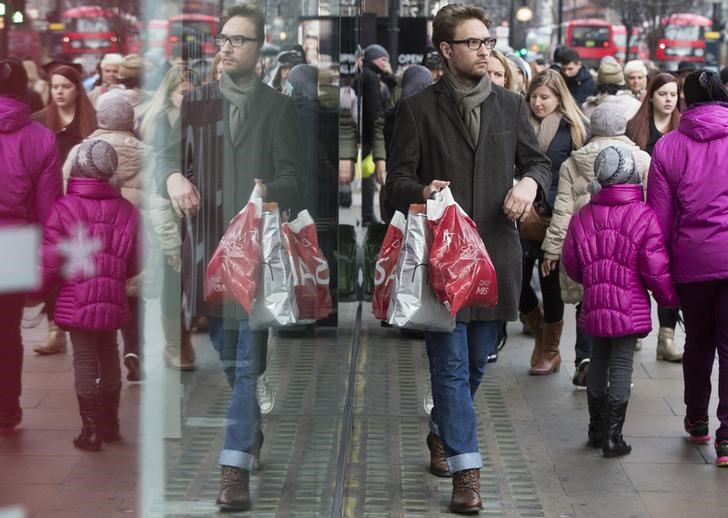LONDON (Reuters) - Food prices in British supermarkets took their biggest fall in more than eight years last month, due to tough competition and falling prices for many raw materials, an industry body said on Wednesday.
The British Retail Consortium said food prices in January were 0.5 percent lower than a year before, the sharpest fall since the series started in December 2006.
Prices for all goods dropped by 1.3 percent, a smaller decline than the 1.7 percent drop recorded in December, when there were more discounts than usual due to spillover from November's "Black Friday" promotions, a novelty in Britain.
"Heavy discounting in early December resulted in some retailers pulling their new season stock forward, which meant a significant amount of goods were sold at full price in January," BRC Director-General Helen Dickinson said.
The continued price falls reported by the BRC are likely to reinforce economists' expectations that Britain's broader official measure of consumer price inflation will soon dip into negative territory for the first time too.
Sharp falls in the price of oil and other commodities have lowered the wholesale prices paid by retailers, and come at the same time that Britain's major supermarkets are trying to fend off a challenge from German discounters Aldi and Lidl.
Analysts think that lower prices for essential goods are likely to boost demand in Britain, unlike some parts of the euro zone where there are greater concerns that a spiral of falling wages and prices could set in.

"Deflation doesn't always translate into bad news for retailers," Dickinson said. "Retail businesses will continue to see decreases in their own input costs for the foreseeable future."